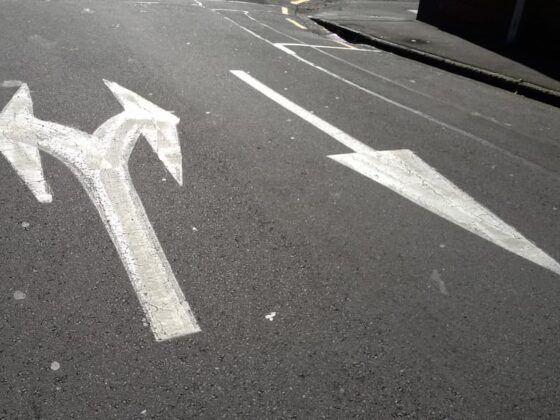As the COVID-19 pandemic continues to affect almost every aspect of daily life here in Hong Kong, the Judiciary on 2 April 2020 issued a Guidance Note, effective 3 April 2020, regarding the use of remote hearings as a means to deal with some pending civil litigation matters in the High Court. However, questions still remain regarding technology compatibility requirements. A further or amended Guidance Note may be issued in due course.
How have civil proceedings in Hong Kong been affected by the COVID-19 pandemic?
With the outbreak of the COVID-19 virus in Hong Kong back in January, the Judiciary, following the government’s public health policy, applied a General Adjournment Period (“GAP“) since 29 January 2020, restricting services and adjourning all proceedings (other than certain urgent or essential business) out of concern for the public safety. Between 9-20 March 2020, certain court registries re-opened for filing of court documents, with the intention that hearings would resume on 23 March 2020, but on 22 March 2020 the Judiciary announced the closure of all civil court registries and extension of the GAP for civil proceedings to 5 April 2020 (subsequently extended to 13 April 2020). Given the current situation, it is likely (but as yet unconfirmed) that the GAP will be extended further.
What is the Judiciary’s guidance for civil cases during the GAP?
Shortly after the commencement of the GAP, the courts began to direct that certain matters be dealt with on paper, and to encourage parties to consider this, in appropriate cases, as an alternative to adjournment of oral hearings. While these “paper disposals” have been welcomed by many in the legal profession as a feasible alternative to the usual in person hearings, many others have called for the Judiciary to tap into today’s modern technology to expand the number of hearings that can be conducted and resolved during the GAP.
As the GAP has continued to be extended, the Judiciary has acknowledged that paper disposals in place of hearings may not be suitable for many civil cases. This is especially so for cases where oral submissions are of vital importance. In response, on 2 April 2020, the Judiciary issued a Guidance Note setting out the practice for remote hearings by electronic means for civil cases in the Court of First Instance and Court of Appeal of the High Court during the GAP.
Phase 1 of the Judiciary’s Guidance Note entails employing the courts’ existing video-conferencing facilities (“VCF“). The Guidance Note envisages the possible use of other technology in the future, provided it is in compliance with applicable court rules and procedures and that it is logistically feasible and appropriately secure. Such hearings will require technology/equipment which is compatible with the Court’s VCF and which meets the operational requirements of court hearings – although, as yet, there is no guidance on the applicable technology requirements to be met.
Who determines whether a civil proceeding will be conducted by using the courts’ VCF?
Based on the Judiciary’s current guidelines, in view of the Court’s limited VCF resources, the question of whether to conduct a remote hearing using the court’s VCF is for the Court to initiate. In other words, for the time being the initiative will come from the court and judges will not entertain any application by parties to use VCF. This temporary restriction is designed to ensure a fair and effective distribution of the limited VCF resources to priority cases which, in the court’s view, warrant remote hearings.
Despite this seemingly rigid guidance, parties who wish to use VCF should, in appropriate cases, make their desire known to the judge responsible for their case. While ultimately it will be up to the judge to decide whether it is appropriate to conduct a hearing using the courts’ VCF, judges may take the parties’ wishes into consideration.
What types of hearings are considered suitable to be conducted remotely?
As it currently stands, all interlocutory applications and appeals in the Court of First Instance are eligible to be considered for remote hearing. Final hearings ordinarily dealt with on written evidence (that is, without live oral evidence), such as applications for judicial review, will also be considered for hearing remotely. In the Court of Appeal, all civil appeals and interlocutory applications, including applications for leave to appeal will be considered for hearing remotely.
In general, applications suitable for hearing remotely by VCF are those where the Court thinks focused oral submissions can be concluded within 2 hours. Importantly, trials currently are not considered suitable for remote hearings.
How are a party’s costs affected by conducting a hearing using VCF instead of in person?
Where the court’s VCF facilities are to be used in conjunction with services and/or materials provided by commercial entities (such as telecommunications carriers providing videoconferencing services or providers of real-time court reporting and transcription services), it is the responsibility of each party wishing to use such services and/or materials to make appropriate contractual arrangements directly with such commercial entities and to directly meet their charges. The costs of the use of the courts’ VCF and any other services/materials used in conjunction with them will form part of the costs of the proceedings and will be subject to the court’s costs orders as the judge deems fit.
Has the Court conducted any remote hearings since the COVID-19 situation began?
Prior to the Civil Justice Reforms coming into effect in 2009, the Working Party on Civil Justice Reform, which included a panel of judges and other legal experts, explored the idea of incorporating the use of telephonic hearings in civil proceedings in the High Court and District Court. Despite the obvious benefits of incorporating e-conferencing technology, the idea was ultimately not recommended due to the panel’s doubts about its cost savings benefits as well as, oddly enough, doubts about whether lawyers were even interested in using phones.
In an exceptional move in February 2020, the High Court held a directions hearing via teleconference with parties involved in a civil case, the first such example since the COVID-19 outbreak began. In its ruling, the Court considered whether telephone hearings are permissible and had no hesitation in deciding, at least the current circumstances, that they are and that the use of teleconferencing was the clear solution to “the current unfortunate and frustrating circumstances”, where oral hearings were not feasible. In another rare move, the Court also called for the legal profession to review how to best manage their cases in times of public health crises where merely attending a hearing in person could be hazardous to all those present.
Commenting on the ruling, legal sector lawmaker Dennis Kwok Wing-hang urged Hong Kong to follow in the footsteps of the UK, Singapore and the many other jurisdictions who have already embraced the use of electronic conferencing (e-conferencing for short) technologies in their legal proceedings. The lawmaker and barrister also drew attention to the HK$682 million funding approved back in 2013 for the courts to implement technological reforms adding that it was time to utilise these resources.
How are jurisdictions such as China and the UK currently using e-conferencing technologies in their legal systems?
In Mainland China, where Internet Courts have existed since 2017, the country’s top court recently ordered courts “at all levels to guide litigants to file cases or mediate disputes online, encouraging judges to make full use of online systems for litigation, including those for case filing and ruling delivery, to ensure litigants and their lawyers get better legal services and protection.”
One judge with the Beijing No. 1 Intermediate People’s Court used an online video communication system app called Yun Shen Pan (雲審判 which literally means “trial in the cloud”), to complete a hearing about a private loan dispute. The Supreme People’s Court of China has also promoted the use of a “mobile micro-court” on the social media platform WeChat in 12 provinces and cities to help courts conduct trials on the internet.
A similar situation exists in the UK where recently all crown court trials across England and Wales were suspended in response to the government’s instruction for stricter social distancing.
Following the passage of the Coronavirus Act 2020, UK courts have increased their video conferencing and remote technology capabilities in order to continue holding trials during the lockdown mandated by the government in response to COVID-19 crisis. Some civil and family courts have already started conducting hearings over Skype, with the first all-Skype trial in the UK taking place just a few weeks ago.
Court Proceedings (Electronic Technology) Bill
In the meantime, prior to the onset of the COVID-19 pandemic, Hong Kong had edged closer to embracing technology in the Courts with the gazettal on 27 December 2019 of the Court Proceedings (Electronic Technology) Bill, which received its first reading on 8 January 2020, and which seeks to introduce electronic filing of court documents. The bill also provides that the Chief Justice may specify by subsidiary legislation or include in practice directions detailed court and operational procedures for the use of electronic means to enable the judiciary to adapt its practices/procedures to take into account rapid technological developments.
What does the implementation of e-conferencing technologies mean for the future of civil litigation proceedings in Hong Kong?
While the High Court includes a Technology Court (located in Court No.7 on the 5th Floor of the High Court Building) the functions of which include enabling the hearing of witness evidence by video conferencing, until now its use has been relatively limited and subject to availability. It’s too early to know for sure if the embrace of e-conferencing technologies will result in wider use of remote hearings in Hong Kong’s civil litigation procedures. However, as other jurisdictions around the world continue to advance their use and incorporation of technology into their legal systems, it will become increasingly difficult to ignore the growing calls to finally bring Hong Kong’s legal system into the digital age.
Our team at Hugill & Ip has extensive experience in dealing with civil litigation matters in Hong Kong – so kindly get in touch with us to find out how we can help.
This article is for information purposes only. Its contents do not constitute legal advice and readers should not regard this article as a substitute for detailed advice in individual instances.




